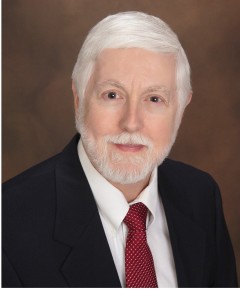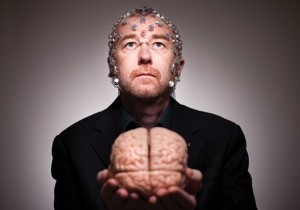There’s no greater sensation than when members of the media become victims. Their deaths are tragedies that cause the same grief thousands of families suffer each year from the homicide of their loved ones (over 16,000 in 2013). But attacks such as the killing of Alison Parker and Adam Ward and the wounding of Vicki Garner August 27, happening in the ordinary course of their work and viewed on live TV while their attacker recorded his brutality, multiply the impact of such assault far beyond the usual.
We have yet another example in Vester Flanagan of a mentally deranged man taking vengeance on people in his world whom he accuses of culpability in his own maladjustment and failure, people who apparently felt no animosity against him. Reportedly, Parker only knew him as an intern, while Ward’s involvement with him culminated in having to video his exit interview. (Gardner was a total stranger.) The murderer believed that innocuous workplace references (e.g., about reporters out in the field) and actions (e.g., someone bringing in watermelon for a summer treat) were meant to insult him, on top of which his termination probably confirmed his feelings of being persecuted. In his own words, he was “racist” and “a human powder keg”. Beyond that it’s all speculation since we don’t know of any mental health evaluation, diagnosis or treatment.
Of course, the White House as well as Virginia Governor Terry McAuliffe beat the drum again for tightening gun control because of the shooting—even though nothing they proposed could have changed this outcome (an extremely common incompatibility between events and remedies). Parker’s father has now sworn to become the “John Walsh” of gun control. At the same time, he’s contemplating buying his own gun so as not to “take any chances”, presumably on the very “gun lobby” that defends his right to buy that gun. On the other hand, and almost impossible to find, was Ward’s father saying that no background check or law could have prevented the murders. Why should that interview be so hard to turn up, compared to thousands of reports of Parker’s father’s assertions?
Without any prohibiting record of criminal convictions or mental illness adjudication, the shooter passed the National Instant Criminal Background Check System (NICS) to purchase his handgun at retail. The only way to keep someone like him from buying a gun legally would be to prohibit many others, or perhaps to require everyone seeking a firearm to present a clean bill of mental health from a recent evaluation. Don’t think that’s happening! And of course, for someone willing to kill and then die, the relative inconvenience of seeking out a weapon illegally does not present much more of a barrier.
As a related factor, we might look at “Estimating the reproducibility of psychological science”, published in the August 28 issue of Science magazine. This is not about making baby psychologists, but about testing the fundamental requirement of objective scientific conclusions: Can the findings be reproduced with the same (or improved) research methods? As it turned out, over 60% could not be, among 98 studies from the recent psychological literature whose replication was attempted. The problem of unreliable conclusions could be even greater overall, perhaps in the range of 80% unproven, when one contemplates the varying quality of editorial policies and peer review across this literature. This should increase the number of grains of salt taken with psychological studies about the characteristics of gun owners, their impulsivity, and any relationship between anger issues and gun ownership in general. There is no way even semi-reliably to predict likely behavior except past behavior, regardless of other speculation.
So what can we conclude? An unbalanced, undiagnosed, untreated man suffered from paranoid ideas about being targeted by people at the TV station he was let go from. He knew himself as both “angry” and “racist”, and came to hate people like his final targets. If there had been broader attention paid to this murderer’s social and vocational problems, maybe there was a chance he might have gotten help before the only option he knew was to explode that way. We all have to be alert to such behaviors and keep reporting them to supervisory, medical and legal authorities who might be better able to assess and intervene.
It’s self-delusion to assume we are safe from dangers because we can’t believe they would happen. In the state which Flanagan worked himself into, he’d have found a way to relieve his anger on someone like Parker, Ward and Gardner no matter what. Their perfectly ordinary lack of concern made it easy.
Culture counts, and today’s media is very focused on racial polarization expressed by violence. That’s where the drama is. The usual media and political noisemakers jumped all over this one. There is seldom notice of normality, companionable relations, respect for the law, or forgiveness. (See “Life, Faith and Death: The Massacre at Emanuel”).
NICS reporting of criminal convictions or adjudicated psychiatric disqualifications remains very inconsistent nationwide. That certainly needs to be improved to make certain prohibited persons actually cannot buy firearms. But given the impossibility of knowing his intentions and preparation, the only way really to have kept a gun from this killer would be to keep them from everyone. That won’t happen in a nation of perhaps 300 million firearms.
And not even psychiatrists, let alone bureaucrats, can read minds.

— DRGO editor Robert B. Young, MD is a psychiatrist practicing in Pittsford, NY, an associate clinical professor at the University of Rochester School of Medicine, and a Distinguished Life Fellow of the American Psychiatric Association.

